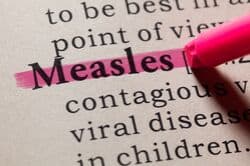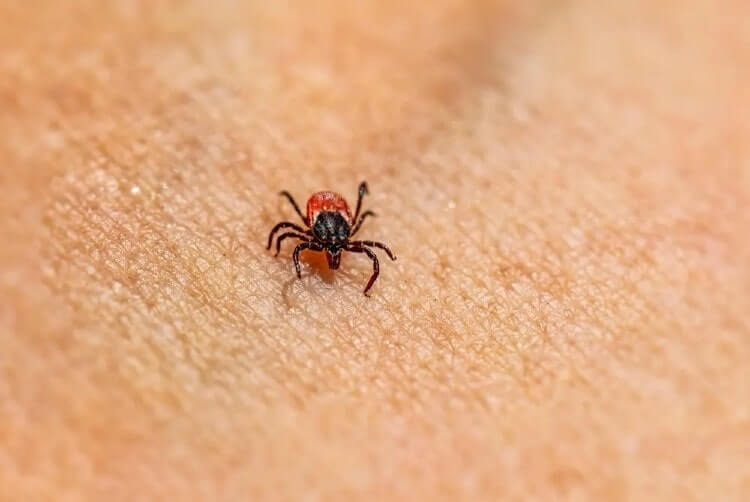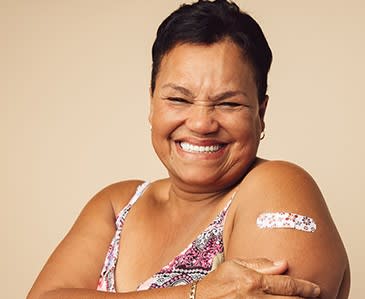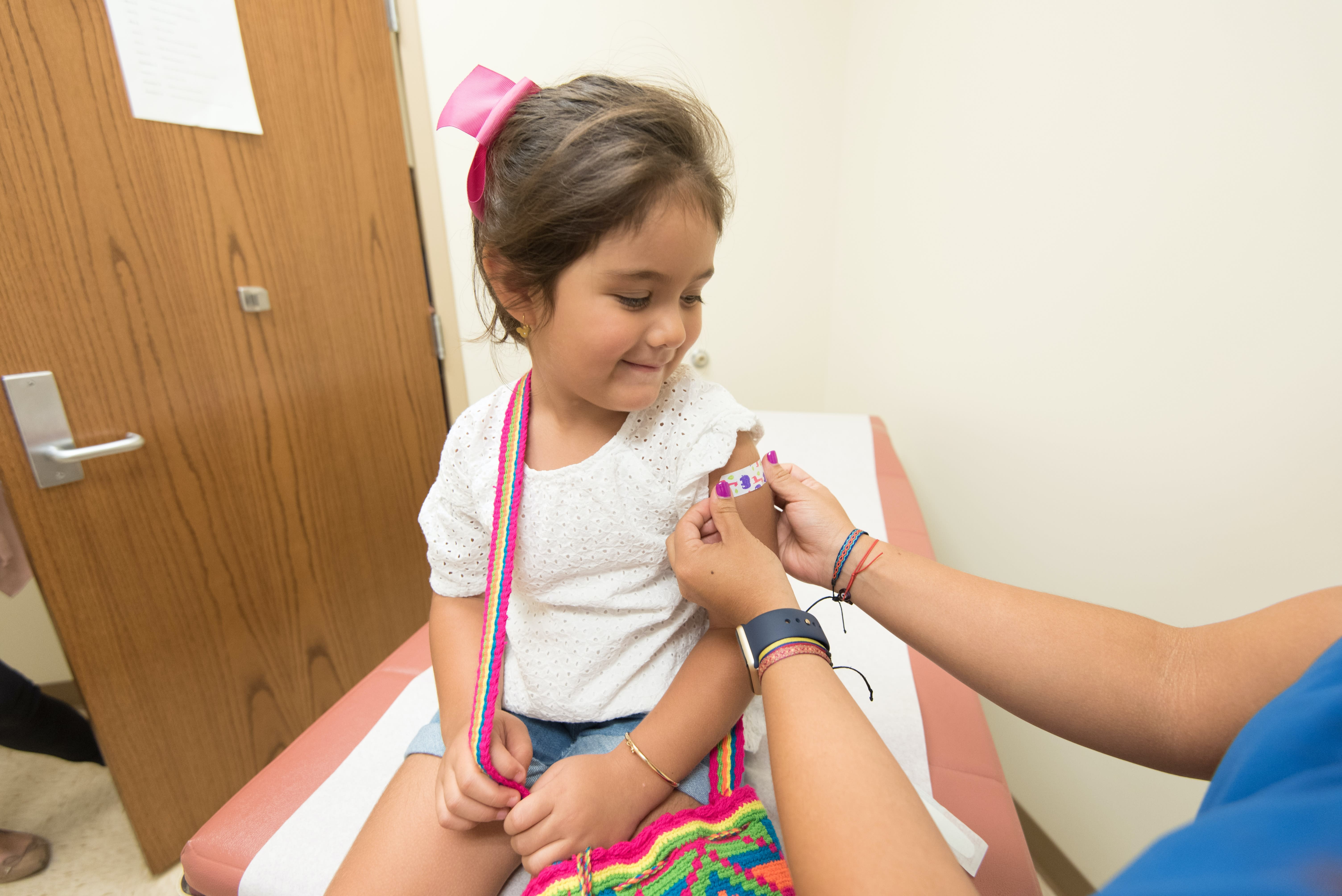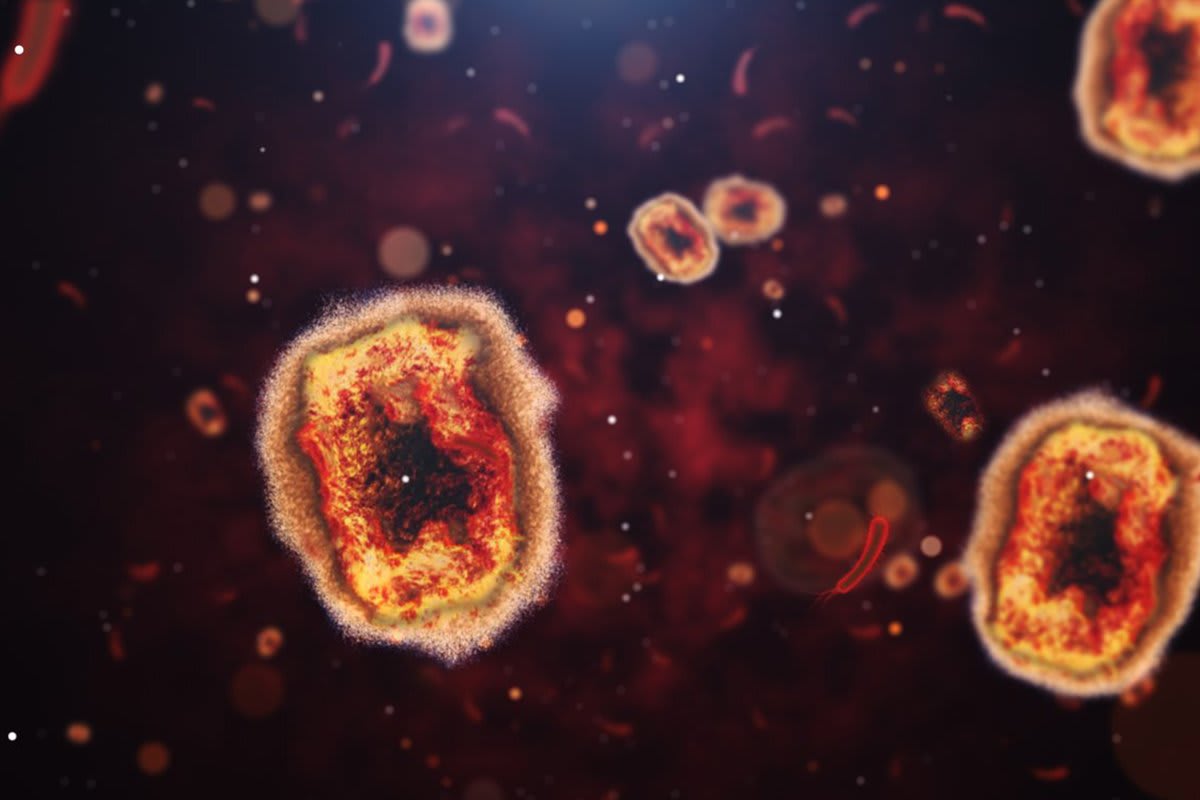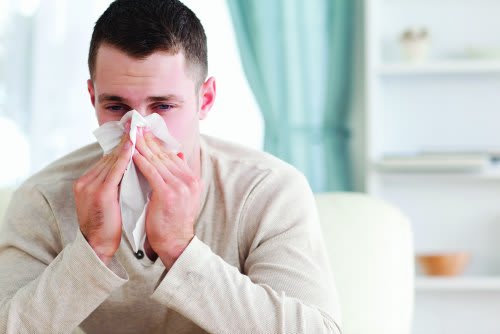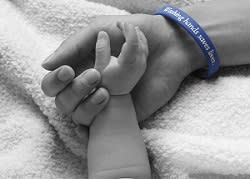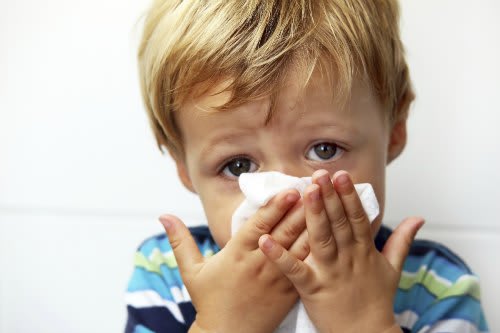By Gerald Rakos, MD, Chair of Pediatrics
Who could possibly have imagined back in 2000 when the Center for Disease Control declared that measles was eliminated from the United States, it would once again be making front-page news? Given that an excellent vaccine has existed for over 50 years, measles is a disease that by now should have been limited to discussions about the history of medicine, not current events.
In addition to these usual symptoms, some patients will develop more serious complications from measles. These include ear infections and pneumonia. A much more serious complication that develops in about 1 in 1000 children is encephalitis which is an inflammation of the brain. Sometimes the encephalitis happens shortly after the more common symptoms of measles appear and sometimes it occurs many months later. Measles may also cause a pregnant woman to give birth early.
One of the challenging aspects of controlling the disease during an outbreak is that an individual is highly contagious for about 8 days including about 4 days before the rash appears. That means a patient can be contagious but often does not know they have anything more serious than a common cold. This helps the disease to spread widely.
In 1998, a study was published in a very reputable medical journal that linked the MMR vaccination with the subsequent development of autism in a small group of 12 children. The journal has since retracted the study because it became clear after an extensive investigation that the author manipulated evidence, had serious conflicts of interest and had broken other ethical codes. The author was found guilty of professional, ethical and scientific misconduct and lost his license to practice medicine. More importantly, large studies were done after this fraudulent paper and have found no evidence that there is a link between the MMR vaccine and the development of autism. The supposed autism and vaccine association has been called “the most damaging medical hoax of the last 100 years”*.
The science is clear; the measles vaccine is safe and very effective in preventing a potentially fatal disease.
*Flaherty DK (October 2011). "The vaccine-autism connection: a public health crisis caused by unethical medical practices and fraudulent science". Ann Pharmacother 45 (10): 1302–4.
Who could possibly have imagined back in 2000 when the Center for Disease Control declared that measles was eliminated from the United States, it would once again be making front-page news? Given that an excellent vaccine has existed for over 50 years, measles is a disease that by now should have been limited to discussions about the history of medicine, not current events.
Why is measles coming back?
Due to the persistence of measles overseas (mostly in under-developed countries), and a growing population of unvaccinated children in the United States, measles is “coming back.” The number of cases of measles nationwide has been increasing steadily over the last two decades, with a very large increase in the last couple of years. In fact, this past year saw the greatest number of cases reported in the U.S. since 1992.What is measles?
Measles is an extremely contagious virus that lives in the nose and throat. It also can live for up to several hours on a surface or in the air. It is so contagious that it is estimated that a non-immune individual has about a 90% chance of contracting the disease if exposed. Its signs and symptoms appear about 10-14 days after exposure and include fever, rash, cough, pink eye (conjunctivitis), and runny nose. Even though measles is a very contagious and serious disease, it’s also preventable with a potentially life-saving vaccine.In addition to these usual symptoms, some patients will develop more serious complications from measles. These include ear infections and pneumonia. A much more serious complication that develops in about 1 in 1000 children is encephalitis which is an inflammation of the brain. Sometimes the encephalitis happens shortly after the more common symptoms of measles appear and sometimes it occurs many months later. Measles may also cause a pregnant woman to give birth early.
One of the challenging aspects of controlling the disease during an outbreak is that an individual is highly contagious for about 8 days including about 4 days before the rash appears. That means a patient can be contagious but often does not know they have anything more serious than a common cold. This helps the disease to spread widely.
How do you prevent measles?
The surest way to prevent getting measles is to get vaccinated. For many years only one shot was deemed necessary. In 1989 there was an outbreak and many of the individuals who got sick had in fact been vaccinated. At that point, the recommendations were changed to add a second shot.What is the measles vaccine age for infants?
The current recommendations are for the first dose to be given at 12-15 months of age and the second between 4-6 years of age. The vaccine is about 97% effective after receiving two doses. The vaccine is given as part of the MMR (Measles-Mumps-Rubella) or MMRV (Measles-Mumps-Rubella-Varicella) vaccines. Adults who have been vaccinated do not need a booster.Does the measles vaccine (MMR vaccine) cause autism?
There is no evidence that the measles vaccine causes autism, only misinformation.In 1998, a study was published in a very reputable medical journal that linked the MMR vaccination with the subsequent development of autism in a small group of 12 children. The journal has since retracted the study because it became clear after an extensive investigation that the author manipulated evidence, had serious conflicts of interest and had broken other ethical codes. The author was found guilty of professional, ethical and scientific misconduct and lost his license to practice medicine. More importantly, large studies were done after this fraudulent paper and have found no evidence that there is a link between the MMR vaccine and the development of autism. The supposed autism and vaccine association has been called “the most damaging medical hoax of the last 100 years”*.
Who should not get the measles or MMR vaccine?
There are some people who should not get the MMR and/or MMRV vaccine. This would include anyone who had a life-threatening allergic reaction to components of the vaccine, or individuals with certain diseases that weaken the immune system. Talk to your doctor if you have any questions about your or your child’s eligibility for the vaccine. It is terribly important that everyone who is able to get vaccinated do so. This helps protect infants under 12 months and those individuals who are not able to be vaccinated.The science is clear; the measles vaccine is safe and very effective in preventing a potentially fatal disease.
*Flaherty DK (October 2011). "The vaccine-autism connection: a public health crisis caused by unethical medical practices and fraudulent science". Ann Pharmacother 45 (10): 1302–4.


